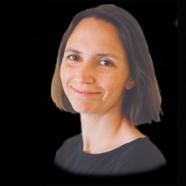
In light of the recent FBI sting dubbed Operation Varsity Blues, and with so much of the media’s bandwidth currently being dedicated to certain high-profile universities and their (wink-wink) acceptance policy concerning students with wealthy and over-zealous parents, this seems like a good time to look beyond the demoralizing college admissions racket that is fueled by privilege and dollars and to learn about legitimate post secondary alternatives for folks who don’t have a big bankroll.
Take Renton Technical College, for example. A two-year school located just southeast of Seattle, RTC serves over 9,000 students annually. The school offers over 60 career training programs (from culinary arts to welding, and a whole lot in between) as well as classes that help students brush up on background skills needed to succeed in college and the workplace.
And out of the 34 two-year colleges accredited in the state of Washington, RTC boasts the highest completion rate. In addition to getting in the front door, after all, it’s important to know if you’re going to have a good chance of graduating in a timely way.
Late last month, over the relative calm of spring break on campus, hammers were still clanging in the carpentry shop, and there was activity also at the automotive maintenance building, where the doors had been thrown open to the warm afternoon. Over in RTC’s main administration building, meanwhile, Financial Aid Director Celva Boon and College Relations Director Katherine Hedland Hansen sat down to talk about the guiding philosophy of RTC.
"We in the community and technical college system have been saying, ‘You know what doesn't happen at an open access college? Bribery scandals!’" Hansen cracked.
In contrast to the ultra-selective admissions practiced by Ivy League schools and others, which typically have acceptance rates in the single digits, the point of open access schools is to make education achievable to all comers.
“Do you want to change your life? Are you wanting to change your career? Then you’re welcome on our campus,” Boon said.
As the first woman in her family to get beyond the 10th grade, and to go on to earn a college diploma, she understands in a deeply personal way the barriers that nontraditional students face. RTC’s student body is composed of a diverse mix of students who, like Boon, might be the first in their family to seek post-secondary education, or they could be immigrants, displaced homemakers, laid-off workers, Running Start students who are earning dual credits toward both their high school diploma and their AA degree, or folks who have just been discharged from the military or released from prison.
“When you look at the history of higher education in America, it wasn’t meant to serve the people on our campus,” Boon said.
“But students here are self-motivated,” Hansen chimed in. “They know they’re ready to do something different with their lives.”
“And those of us who have navigated this path already, it’s our responsibility to go back and help others,” Boon added, ticking off a long list of grants, loans, and assistance programs that can be tapped into to help students pay for tuition and associated costs of schooling. There are also emergency funds that can be used for fixing a flat tire or buying groceries – things that sometimes can make the difference between staying in school and dropping out. And support groups meet regularly on campus to encourage nontraditional students to persevere.
“We try really hard to hand-hold, and we don’t see that as a problem,” Boon said.
To make the point, Hansen ducked out of the office and came back in a minute later with Aurelia Turcan, an RTC work-study student who is putting in hours at the financial aid office over spring break.
Turcan immigrated to this country from Moldova. She and her husband have three children, and Turcan said that when they came to this country, she knew nothing about how systems in the United States worked.
But when she started taking English as a Second Language classes at RTC, “I fall in love with it.”
“The people who are here are kindly, friendly – they understand people from outside…” and they encouraged her to continue her education, Turcan said. She entered the accounting program, and is due to earn her Associate degree this spring with a 3.96 GPA.
“I compare it with life in Moldova,” she said. “There, if you have money, you can pay for education. And if you don’t, you stay home.
“My parents,” she shrugged, “didn’t have money.”
But now, as a mother herself, raising children in the U.S., she is eager to set a different kind of example.
“In this country, every student has the possibility to follow their dreams.”









